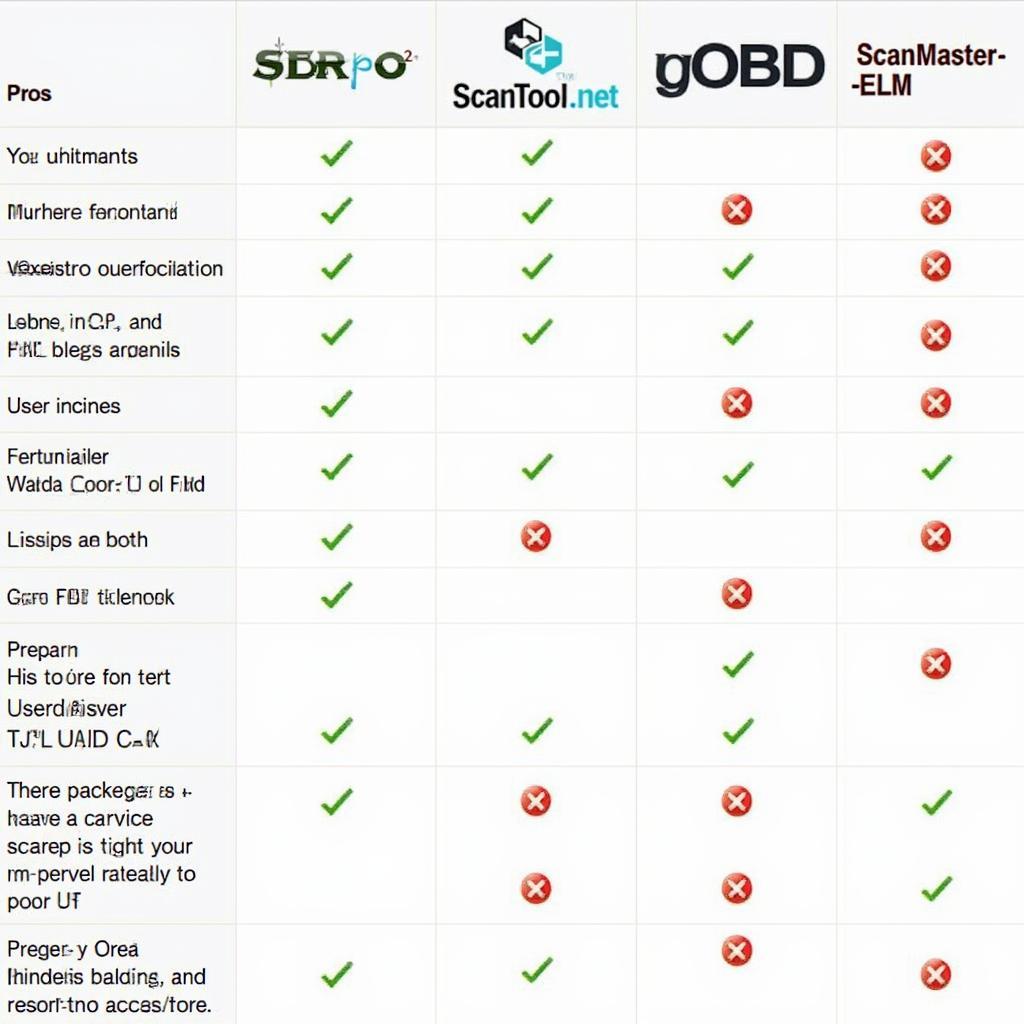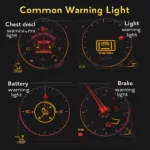Linux OBD2 alternatives offer a powerful and flexible approach to vehicle diagnostics, providing car enthusiasts and professionals alike with a range of open-source and cost-effective solutions. This article explores the diverse landscape of Linux-compatible OBD2 software and hardware, empowering you to choose the best tools for your needs.
Diving into the World of Linux OBD2 Alternatives
While Windows-based OBD2 software dominates the market, Linux users have a wealth of open-source and often free alternatives at their disposal. These tools provide similar, and sometimes even more advanced, functionality for diagnosing and troubleshooting car problems. Choosing the right alternative depends on your specific requirements, technical expertise, and the depth of diagnostics you need.
Choosing the Right Linux OBD2 Software
Several prominent Linux OBD2 software options stand out for their versatility and community support.
GUIsimplicity with ScanTool.net
ScanTool.net offers a user-friendly, browser-based interface compatible with various operating systems, including Linux. This makes it an accessible option for users who prefer a graphical interface and cross-platform compatibility.
The Power of Open-Source: pyOBD
pyOBD is a Python library that provides a framework for interacting with OBD2 interfaces. Its open-source nature allows for customization and integration with other Python projects, making it a popular choice for developers and advanced users.
Versatility with ScanMaster-ELM
ScanMaster-ELM is another cross-platform option known for its extensive feature set. Its compatibility with various ELM327 adapters makes it a versatile choice for different vehicle makes and models.
Selecting Your OBD2 Hardware Interface
The software is only half the equation. You’ll also need a compatible OBD2 hardware interface to connect your Linux machine to your vehicle’s OBD2 port.
The Popular Choice: ELM327 Adapters
ELM327 adapters are widely available and affordable, making them a common choice for both hobbyists and professionals. They come in various form factors, including USB, Bluetooth, and Wi-Fi, offering flexibility in how you connect to your vehicle.
Exploring Other Hardware Options
Beyond ELM327, other hardware interfaces cater to specific needs, such as J2534 pass-through devices for advanced diagnostics and reflashing. These devices offer higher performance and compatibility with manufacturer-specific protocols.
Setting up Your Linux OBD2 System
Once you’ve chosen your software and hardware, setting up your Linux OBD2 system is generally straightforward. This usually involves installing the necessary drivers and software packages, configuring the connection to your OBD2 interface, and ensuring proper permissions for accessing the device.
Troubleshooting Common Issues
Occasionally, you might encounter issues during setup, such as driver conflicts or connection problems. Online forums and community resources are valuable tools for troubleshooting these challenges.
Why Choose Linux for OBD2 Diagnostics?
Linux offers distinct advantages for OBD2 diagnostics, including:
- Cost-effectiveness: Many Linux OBD2 software options are open-source and free, saving you money compared to commercial Windows software.
- Flexibility and Customization: Linux allows for greater control and customization of your diagnostic setup, enabling you to tailor the system to your specific needs.
- Community Support: A vibrant open-source community provides extensive support and resources for troubleshooting and development.
“Linux’s open-source nature makes it a breeding ground for innovative OBD2 tools,” says automotive diagnostics expert, Dr. Emily Carter, Ph.D. “The flexibility and cost-effectiveness are unmatched.”
Beyond Basic Diagnostics: Advanced Capabilities with Linux
Linux OBD2 alternatives aren’t limited to basic code reading and clearing. Many tools offer advanced features such as:
- Data Logging: Record sensor data over time to identify intermittent issues.
- Performance Tuning: Adjust engine parameters for optimal performance.
- Custom Scripting: Automate diagnostic tasks and create custom routines.
“For serious car enthusiasts and professionals, the advanced capabilities of Linux OBD2 tools are a game-changer,” adds automotive engineer, Mr. David Miller. “The ability to delve deeper into vehicle data and customize your diagnostic approach is invaluable.”
Conclusion: Empowering Your Car Diagnostics with Linux
Linux OBD2 alternatives offer a compelling option for anyone seeking powerful, flexible, and cost-effective car diagnostic solutions. From open-source software to versatile hardware interfaces, the Linux ecosystem provides a wealth of tools to empower your automotive diagnostics journey. By exploring these alternatives, you can unlock a new level of control and insight into your vehicle’s health and performance.
FAQ
-
Is Linux OBD2 software difficult to use? Not necessarily. Many options offer user-friendly interfaces, while others cater to advanced users with customization options.
-
What are the minimum hardware requirements for running Linux OBD2 software? Requirements vary depending on the software, but a typical Linux installation with sufficient processing power and memory should suffice.
-
Can I use Linux OBD2 software with any vehicle? Most software supports standard OBD2 protocols, which are compatible with most vehicles manufactured after 1996.
-
Are there any security risks associated with using Linux OBD2 software? As with any software, it’s important to download from trusted sources and keep your system updated.
-
Where can I find support for Linux OBD2 software? Online forums and community resources are excellent sources of information and support.
Need more help? Contact us via WhatsApp: +1(641)206-8880, Email: [email protected] or visit us at 789 Elm Street, San Francisco, CA 94102, USA. We have a 24/7 customer support team ready to assist you.


